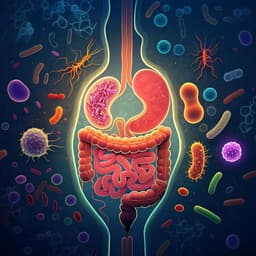
Medicine and Health
Fasting-mimicking diet remodels gut microbiota and suppresses colorectal cancer progression
M. Luo, Q. Wang, et al.
This exciting research by Man Luo and colleagues explores the impact of a 4-day fasting-mimicking diet on colorectal cancer in mice. The study reveals that this diet not only suppresses cancer growth but also enhances immune response and gut microbiota, particularly highlighting the role of *Lactobacillus johnsonii* in these effects. Discover how combining this diet with anti-PD-1 therapy could revolutionize CRC treatment!
Playback language: English
Related Publications
Explore these studies to deepen your understanding of the subject.







